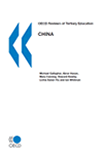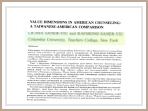Human Development
Some Missing Dots
Raymond Saner & Lichia Yiu (2023), in Michel Carton & Christine Hofmann (Eds), The Education-Training-Work Continuums: Pathways to Socio-Professional Inclusion for Youth and Adults. Norrag and International Labour Organisation. NSI 08: 110-114.
An educational governance system based only on input or output measures is neither satisfactory nor effective. An innovative and adaptive governance system needs to monitor the outcome and impact in order to know whether an education–training–work system has achieved its mission. This chapter proposes a governance infrastructure to guide and coordinate six education–training–work transformations, namely, human capacity and demography; consumption and production; decarbonization and energy; food, biosphere, and water; and smart cities and digital revolution.
Raymond Saner and Lichia Yiu, (2014) “Learning to Grow: A Human Capital-focused Development Strategy, with Lessons from Singapore”.The authors argue that a key challenge for middle-income countries is to avoid ‘the middle-income trap’. In this situation, economic growth has come to a halt and a country is unable to transition to the next level in part due to inadequacies in high-level human capital. Taking the example of Singapore as a country that has avoided the middle-income trap, the authors call for ‘a much closer alignment of policies for human capital and economic development’ and a ‘human capital focussed development strategy’.(2014). This paper including a response by S. Gopinathan and others is also available at: http://poldev.revues.org/1803; to be cited as: Raymond Saner and Lichia Yiu, “Learning to Grow: A Human Capital-focused Development Strategy, with Lessons from Singapore, in “Policy Debate | Learning to Grow Beyond the Middle-Income Trap - Singapore as an Export Model?” by Raymond Saner, Lichia Yiu and S. Gopinathan, International Development Policy, Graduate Institute, Nr. 1803, University of Geneva
 Education is a central priority for the State of Santa Catarina. Its policy makers are firmly committed to providing a relevant and efficient education system that responds to the requirements of the global economy and allows the state to be competitive, both nationally and internationally.
Education is a central priority for the State of Santa Catarina. Its policy makers are firmly committed to providing a relevant and efficient education system that responds to the requirements of the global economy and allows the state to be competitive, both nationally and internationally.
This OECD review gives a brief overview of education in Santa Catarina and its development. It presents an analysis of the system from pre-school to tertiary education and lifelong learning, and identifies key directions for policy reform in light of the challenges encountered by officials, communities, enterprises, educators, parents and students. It concludes with a set of key recommendations concerning the structure of the system and its labour market relevance; access and equity; governance and management; research, development and innovation; internationalisation; and financing.
Saner, R. "A challenge for international youth development: commitment and values -in search for universal love, friendship and understanding". International Youth Conference, Chinese Taipei, 1989.
![]() Staugard, F. (Ed.). The Role of Women in Health Development, The report of an international workshop held at the Nordic School of Public Health, 5-9 June, 1989.
Staugard, F. (Ed.). The Role of Women in Health Development, The report of an international workshop held at the Nordic School of Public Health, 5-9 June, 1989.
Author: Saner, R. & Yiu, L.
 This Country Note offers independent, external observations of the tertiary education sector in the People’s Republic of China.1 It forms part of the OECD Thematic Review of Tertiary Education. The Thematic Review is designed to examine policy frameworks and settings for tertiary education across participating countries. The scope of the Review considers tertiary education in its broad economic and labour market context, as well as its linkages with the other sub sectors of education.
This Country Note offers independent, external observations of the tertiary education sector in the People’s Republic of China.1 It forms part of the OECD Thematic Review of Tertiary Education. The Thematic Review is designed to examine policy frameworks and settings for tertiary education across participating countries. The scope of the Review considers tertiary education in its broad economic and labour market context, as well as its linkages with the other sub sectors of education.
![]() Article
Article
 This paper is a discussion of prevailing American value dimensions in conseling theory and practice in general and a comparison of Taiwanese (Taiwan, Province of China) and American counselling value dimensions in particular.
This paper is a discussion of prevailing American value dimensions in conseling theory and practice in general and a comparison of Taiwanese (Taiwan, Province of China) and American counselling value dimensions in particular.